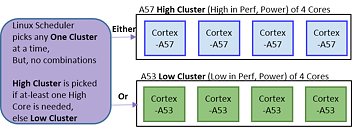
Intel Unveils "Lakefield" Heterogenous SoC and "Project Athena"
Intel today unveiled a killer new product with which it hopes to bring about as big a change to mobile computing as Ultrabook did some eight years ago. This effort is a combination of a new mobile computing form-factor codenamed "Project Athena," and an SoC at its heart, codenamed "Lakefield." Put simply, "Lakefield" is a 10 nm SoC that's integrated much in the same way as today's ARM SoCs, which combine IP from various vendors onto a single PoP (package-over-package) Foveros die.
The biggest innovation with "Lakefield" is its hybrid x86 multi-core CPU design, which combines four Atom-class low-power cores, with one Core-class "Sunny Cove" core, in a setup akin to ARM's big.LITTLE. Low-power processing loads are distributed to the smaller cores, while the big core is woken up to deal with heavy loads. The SoC also integrates a Gen 11 iGPU core, partial components to accelerate 802.11ax WLAN, 5G, an PoP DRAM and NVMe storage devices. The reference motherboard based on "Lakefield" is barely larger than an M.2 SSD!
The biggest innovation with "Lakefield" is its hybrid x86 multi-core CPU design, which combines four Atom-class low-power cores, with one Core-class "Sunny Cove" core, in a setup akin to ARM's big.LITTLE. Low-power processing loads are distributed to the smaller cores, while the big core is woken up to deal with heavy loads. The SoC also integrates a Gen 11 iGPU core, partial components to accelerate 802.11ax WLAN, 5G, an PoP DRAM and NVMe storage devices. The reference motherboard based on "Lakefield" is barely larger than an M.2 SSD!




